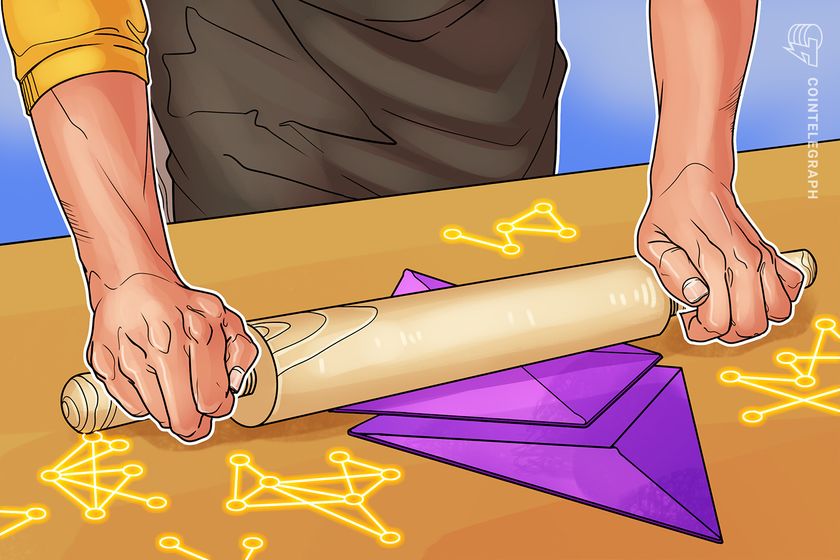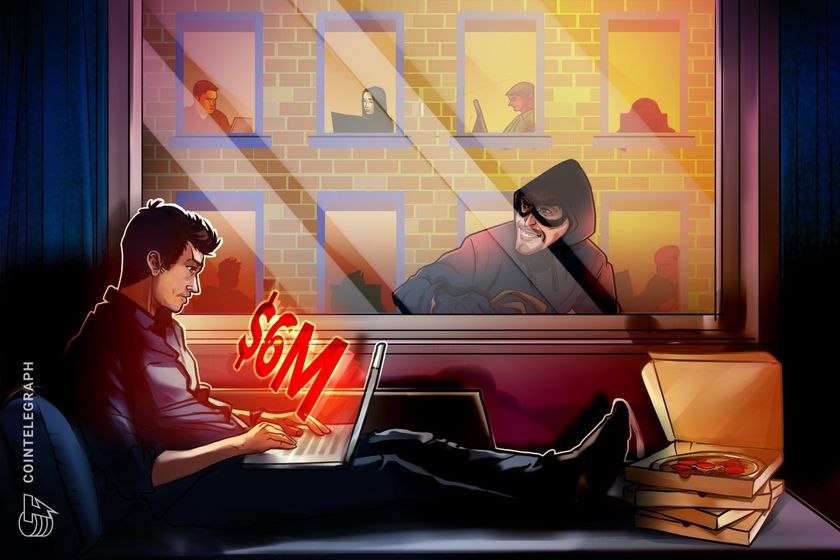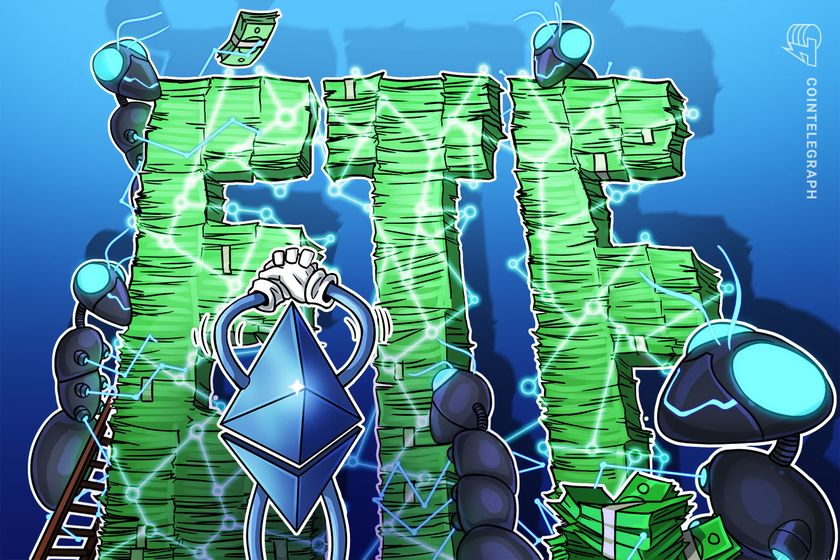Curve’s (CRV) price hits a 1-year low amid looming liquidation threat

A risky loan in AAVE and the resulting liquidation threat for CRV have pushed the governance token to a 1-year low, but there is a chance for a powerful short-squeeze.
Curve DAO’s governance token CRV dropped 12% on June15 after reports surfaced of risky loans taken by its founder, Michael Egorov, on Aave. The token recorded its lowest trading level against ether (ETH) at 0.00035010 ETH on June 15.
According to on-chain analytics outlet LookOnChain, Egorov deposited 431 million CRV (worth around $246 million) across multiple decentralized lending protocols and borrowed $101.5M of stablecoins on multiple platforms. The deposits by Egorov account for 50.5% of CRV’s circulating supply.
DeFiLlama data shows that CRV faces a liquidation threat of $107 million on Aave if its value falls below $0.37. After a liquidation is triggered, the CRV tokens will be locked in Aave’s smart contracts until an interested buyer settles and liquidates the collateral. A proposal has been made to freeze Egorov’s loans on Aave and prevent further CRV loans to avoid a catastrophic situation.
While the size of Egorov’s loans puts the token under tremendous pressure, the negative bets on CRV have risen considerably, providing fuel for a possible quick upside move.
Is a CRV short squeeze in the making?
The open interest volume for CRV perpetual swap contracts has increased from $35.5 million to $46.3 million following the revelation of Egorov’s loans.
The funding rate for CRV token on centralized derivatives exchanges like Binance and OKX has dropped to historical lows near 81% per annum, per Coinglass data. The negative funding rate suggests that most of these new traders are betting on additional price downside.
As the short side gets crowded, it creates an opportunity for buyers to hunt their stop losses. The phenomenon is known as a short squeeze. It occurs when an asset’s price moves quickly in the opposite direction of short players as they rush to protect their positions or buy the asset to close their positions.
Technically, the CRV/USD pair could find support around the 2022 low between $0.53 and $0.40. Given that a quick recovery is possible from a short-squeeze, the price can tag the 50-day moving average at $0.82.
To the downside, a breakdown of this support level could see the sell-off extend toward 2021 low near $0.32. At the time of publishing CRV was last trading at around $0.59.

The CRV/ETH token pair looks particularly weak as the pair recorded a new all-time low. The pair appears to be following a descending pattern, which hints at a likelihood of a rebound from the 0.0032 ETH level.
However, the long-term trend remains negative while engulfed in a descending channel, specially with the ETH market structure looking particularly bearish below the 0.0042 ETH support level from 2022 lows.

CRV’s long-term projection looks grim
Curve’s revenue stats are also not favorable toward buyers. The platform’s fees declined significantly after the FTX collapse in November 2022, reducing CRV’s yield over time. CRV stakers are paid 50% of the Curve’s revenue from trading fees.
While the decentralized exchange witnessed a temporary surge in activity in March 2023, the fees have remained near two-year lows in recent months.
Another way CRV token holders accrue value is through bribes earned from voting for directing rewards toward specific pools. Similar to trading fees, the earnings through bribes have also remained near one-year low.
Related: DeFi volumes surge 444% after Binance, Coinbase lawsuits: Finance Redefined
Curve’s liquidity has declined significantly over the recent months, making CRV susceptible to violent price swings. Crypto research firm Kaiko found that CRV’s liquidity has declined significantly over the year, to the extent that a $800,000 order can move prices by 2%.
There is a lot of uncertainty around CRV as it faces liquidation risk from a $264 million CRV-collateralized DeFi loan on Aave. However, the possibility of swift short-term upside is brewing as futures traders crowd the short side of the trade. The decrease in CRV’s market liquidity further adds to the risk for traders as the token is exposed to high volatility.
This article does not contain investment advice or recommendations. Every investment and trading move involves risk, and readers should conduct their own research when making a decision.
This article is for general information purposes and is not intended to be and should not be taken as legal or investment advice. The views, thoughts, and opinions expressed here are the author’s alone and do not necessarily reflect or represent the views and opinions of Cointelegraph.









